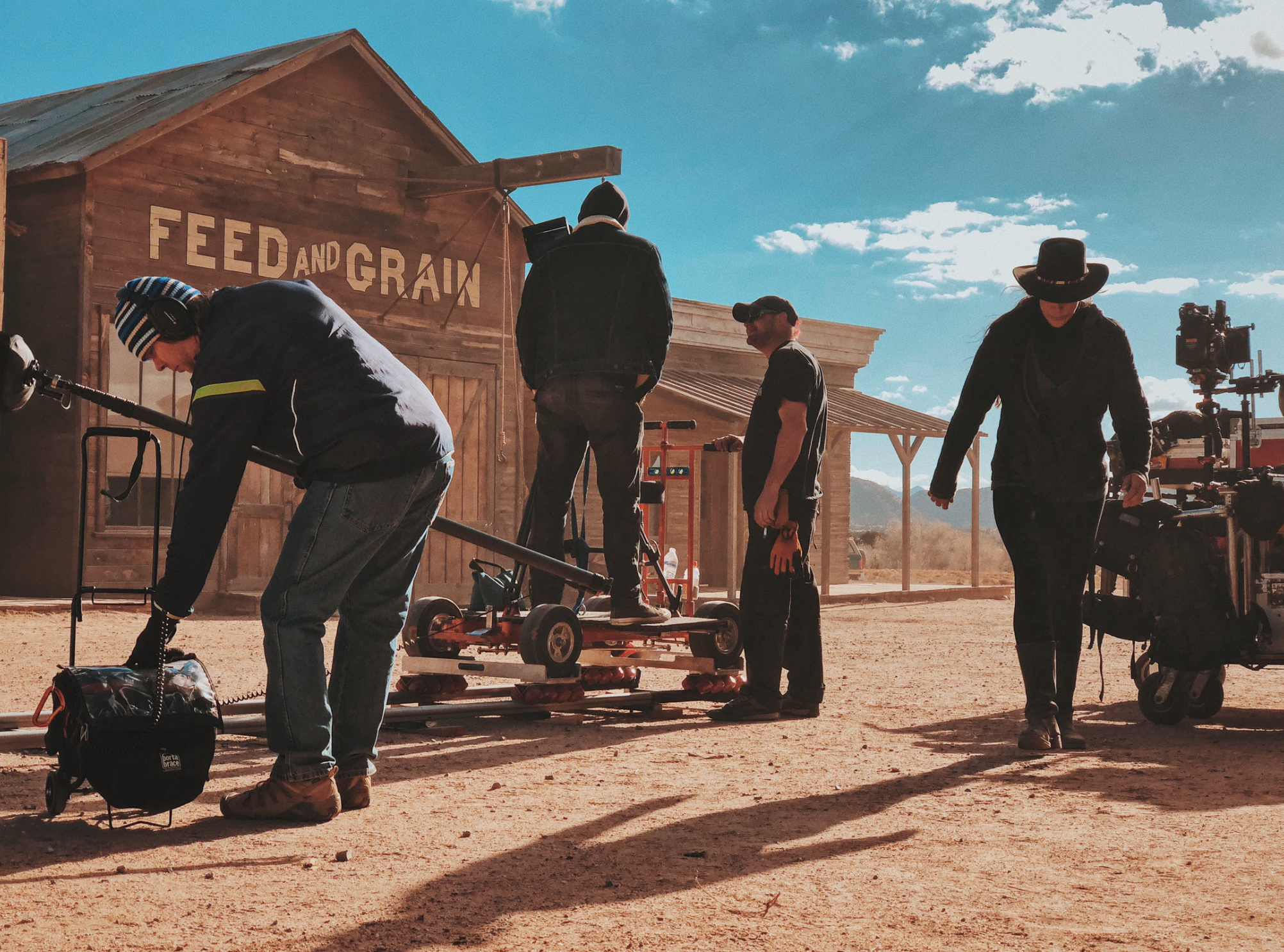
Legendary screen actress Gene Tierney once said, “Eccentric behavior is not routinely noticed around a movie set.”
As much as we like to believe that a TV and film set has just as much drama as the story being told, it’s simply not true. A set abides by strict rules and a crew hierarchy, and it’s an actor’s responsibility to educate themselves on how to navigate this world.
Sure, you’ve worked hard and made it through casting calls and auditions, but that’s only the beginning.
Let’s review the dos and don’ts of on-set etiquette, and how to develop a strategy that will land you acting jobs for years to come.
Understand the On-set Hierarchy
Let’s face it, there are many ways an actor can sabotage themselves on set.
Whether you’re a lead actor or it’s your first project, understanding the cast and crew hierarchy of a TV and film set is essential. You don’t want to be at a crafts services table and push over the producer just to snag the last eclair.
Think of a set as a universe, where each department is its own world with its own rules.
Take time to educate yourself about the on-set chain of command, what each role does and how it contributes to the greater production.
By understanding your business, you’ll reduce the chances of committing a faux pas and set yourself up for more acting roles in the future.
Listen to the Director
Yes, we’ve all heard stories of difficult actors making the lives of their directors miserable.
As much fun as it is hearing these sordid tales, the reality is the practice is detrimental to both actors and on-set productions.
Digital content production and movie sets involve complex components. This is why an actor needs to trust their director.
If you’re constantly second-guessing the director, you could be compromising vital takes that will stall production. To avoid this, never stop a take because you made an error.
Of course, you need to be invested in your character, but many factors could be affected by the disruption. Always continue the scene until you hear “cut,” and remember, unless there’s an emergency, only the director should call “cut.” At that time, you can confer with the director and discuss the matter (they may like the mistake more than the planned take).
When in a conference, be gracious about notes. If you still have reservations, request an additional session to discuss further. There are going to be directing styles you don’t agree with, but be polite and remember that frustration fuels creativity.
Punctuality is Key On-set
Sometimes there are moments of crisis that lead to lateness. That being said, punctuality though is vital for on-set productions.
Regarding time management for casting calls and auditions, casting director Lucy Bevan says, “Be disciplined. Come in cleanly, leave cleanly.” The same holds for acting jobs.
Always arrive early. Use the advanced time to warm up, review your lines and prepare for any questions you have for the director.
You may think, “I’m just a background actor. Will they notice if I’m a little late?” Your part may seem minimal to you, but chances are it’s integral. Your absence could have severe consequences for the production.
To minimize this risk, avoid drinking alcohol the night before and make sure you get a good night’s sleep. If you have trouble sleeping, take author Tim Ferriss’ advice and try drinking decaffeinated tea with raw honey and apple cider vinegar an hour before bed.
Ferris says the concoction induces deep, restful sleep and should be a part of any actor’s on-set arsenal. There are also online casting resources that offer helpful advice for actors to stay focused. When it comes to on-set productions, the classic adage is true: better to be too early than too late.
Be Mindful of Equipment On-set
We’ve all seen the image of a director gazing through a camera lens. You may think they won’t mind if I take a quick look. If you want to ensure obtaining acting roles in the future, it’s best to stay away.
Not surprisingly, equipment on set is expensive and requires a trained technician to operate it. Perhaps you notice a grip moving a light and decide to help them. What you perceive as help, they perceive as interference.
Remember, these are working professionals who are likely union members. They have specific rules of who can and cannot handle equipment on set.
Be conscious of “Hot Set” signs. These signs indicate that furniture and props have been positioned for an imminent scene, and moving them would compromise continuity.
Last but not least, never pass in front of the camera. Always cross behind, unless you are in rehearsal or shooting. You may think a camera isn’t rolling, but your ignorance could jeopardize a shot or elaborate setup.
In relation to this, a camera is sometimes connected to a monitor only for cast and crew members who have been invited to view it.
As you can see, whether it’s digital content or TV, on-set productions are complex. Rather than negotiate who might or might not be receptive to your good intentions, it’s best to avoid touching equipment and props altogether.
Know When to Be Quiet On-set
Although this probably goes without saying, good manners are essential for acting jobs. Unnecessary noise is one of the things successful actors avoid.
On a TV or film set, silence is golden. It’s always important to be aware of where the rehearsal or shooting takes place so you can keep your distance.
Speaking of silence, nothing makes a cast and crew want to chase you out of a building than a cell phone going off during a shot. Make sure your phone is silenced before every take. Avoid all personal or social media photography on-set.
Network During Your Free Time, Not On-set
Considering that a recent study found that 70% of all jobs come from word of mouth, networking is important for acting jobs. Although sets can be great places to make the necessary connections, there’s an appropriate time for these interactions to occur. It’s important to restrict networking to meal and break times.
Now, we’ve talked about how vital it is to avoid disruptions on set. If you’re constantly trying to schedule a drink meeting while a costume designer fixes their Yeti outfit, chances are you’re hurting yourself for future acting roles.
It’s fine to network, but don’t allow your actions to compromise the progress of the production.
Report Any Unsafe Conditions
Typically, sets are built for temporary use. Unfortunately, sometimes this results in materials that may pose a hazard for cast and crew. If you come across something that seems dangerous, make sure you abide by the on-set hierarchy and notify your direct point of contact.
Besides the risk of injury, the producer wants to avoid a liability that could cost money and delay production.
Check-in and Out
Finally, always check in and out with your point person on set. Depending on the size of the production, this could be either the assistant director or the director.
If you need to leave for any reason, make sure you notify the appropriate personnel, then confirm with the individual once you return. The last thing you want is for the crew to be scrambling to find you because of some new development.
Wrapping Up On-set Etiquette
Dakota Fanning once said, “Often on a set you’re cold, hungry, tired and it’s still dark out. And yet, there’s no place I’d rather be. It’s the happiest I am, and the most confident.”
On-set productions can be frustrating and intimidating, but being mindful of these dos and don’ts will help you be evermore successful in your future acting jobs.
Want to get your acting career started? Sign up or login to Casting Frontier and start auditioning today!
You may also like:




